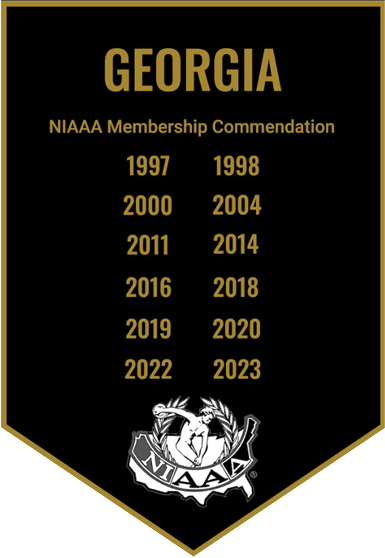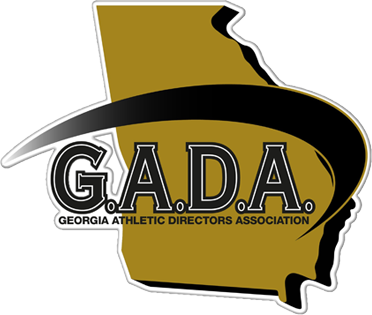Behavior in Sports Summit Focuses on Solutions to Poor Fan Behavior
By Chris Boone
A video compilation of violent behavior at high school sporting events shown at the outset of the NFHS Behavior in Sports Summit held last month in Indianapolis marked not only the beginning of the Summit, but also an ending of sorts.
While the video acknowledged the problem of poor fan behavior, the Summit’s focus quickly pivoted to finding solutions to the issue. Essentially, the problem is understood; the mission of the Summit was to discuss ways to fix the problem.
The Behavior in Sports Summit was birthed after the NFHS hosted two Officials Consortiums the previous two years. The Consortiums focused solely on officiating and the issues of recruiting and retaining officials. It was made clear during those events that poor behavior by fans and coaches was causing serious problems at high school sporting events and worthy of a third meeting in search of solutions.
“When we look at the education-based programming – sport in particular – we’ve gone from an institution of sport that is informative to now one that is performative. I think that paradigm shift has caused a lot problems,” NFHS CEO Dr. Karissa Niehoff said in her opening remarks to attendees. “We have invited (attendees) to be here…to tell us what we need to do as a Federation to deal with the changes that are challenging all of us.”
The attendee list was intentionally diverse. The Summit brought together a wide-ranging group of athletic administrators, state association administrators, coaches and media members, all with a unique perspective on how to influence better behavior.
“We know it’s easy to talk about problems, but without solutions, we’re just commiserating,” said NFHS Director of Officiating Services Dana Pappas. “We ask you to use your influence to make interscholastic sport better, which helps our officials and, ultimately, helps our student-athletes.”
The three-day Summit began with a keynote address from Anne Marie Anderson, an Emmy-award winning broadcaster. Anderson, a sports parent to her three kids, talked about the “Roadmap to Healthy Behavior in Education-Based Sports” from her perspective from the sidelines as a media member and a parent.
“I’ve been really active in my community in terms of trying to get a better culture for our kids. I’m very aware of it. That’s why I’m pleased to be here,” Anderson told attendees in her address. “When we talk about how to fix this, it needs to come, in part, from the other parents. We need everybody else to be partners with us in creating a better culture. We can bring the people who are on board but silent to help.”
Anderson spoke about what motivates parents to act poorly, from the fear of failure for their children and unreasonable expectations to earning a return on their investment of time and money.
Parent triggers were also examined during a general session with Wisconsin coach Meagan Frank and retired Connecticut athletic director Teg Cosgriff. On a macro level, the fear of loss of social status, jealousy and missing out on experiences can all trigger parents to act poorly. But, in a game situation, micro-triggers can also cause parents to act out. Frank noted this happens when parents believe a situation is unsafe or unfair to their child.
Once parents’ motivations are recognized, schools must work with parents to promote better behavior, which was the focus of another general session.
Alva Amaker, a consultant and former athletic director, suggests confronting parents directly.
“We’re not going to be bystanders anymore,” Amaker said. “We’re calling out parents for inappropriate behavior in parent meetings. (That behavior) is not hidden. It’s not a secret. We’re not trying to embarrass anybody. But, how do we get past this?”
Parents also should know that their behavior could have an impact on their athlete’s future, too.
“Only two percent of high school athletes played in college. That’s not going to change parents trying to get their kids there,” said Jennifer Beck, a TV reporter from Lima, Ohio. But Beck noted that parents’ attitude and behavior on the sideline could negatively affect a college coach’s perception of the athlete, ultimately costing them a chance at a college offer.
The role of the media in promoting positive behavior was the focus of multiple sessions of the Summit. A general session panel examining how media coverage can shape a positive or negative narrative, especially on social media, included reporters Nick Stevens and Tom Kreager as well as Center Grove (Indiana) High School Sports Network Director Kevin Conrad. Kreager, a high school sports reporter for the Tennessean, noted that the vast majority of the articles he writes highlights the human interest stories of high school sports, but the occasional negative stories often get more attention.
Other breakout discussion topics for media included “Adjusting Media Coverage from High School to College and Pro Sports” and “Positive Storytelling in High School Sports.”
National Interscholastic Athletic Administrators Association (NIAAA) Associate Director Rich Barton and Mooresville (Indiana) Athletic Director Mike Mossbrucker led a breakout discussion on how school administrators can build a team approach to addressing behavior at events.
“We need to recruit parents, participants and stakeholders to be agents of change,” Barton said. “Upstanders are the potential MVPs of our team approach. We need to make sure we have these individuals as crucial parts of our team.”
Barton identified potential “upstanders” as parents who are empowered to take ownership, cheer groups, boosters clubs and student body officers, among others.
The importance of tackling the causes of poor fan behavior at the middle school level was addressed with a panel of administrators, including Illinois Elementary School Association (IESA) Executive Director Nicole Schaefbauer, IESA Assistant Executive Director Chris Frasco, Tennessee Secondary School Athletic Association Assistant Executive Director Richard McWhirter and Positive Coaching Alliance Director of National Partnerships Marti Reed.
“Sportsmanship is not a checklist item,” Reed said. “It must be addressed daily and be at the forefront of every conversation.”
Another panel invited state association executive directors from Ohio, Vermont, Colorado and California to share initiatives and policies they have implemented at the state level for schools to utilize.
A session on event security and a breakout discussion on balancing sportsmanship and success rounded out the agenda.
In her closing remarks to the group, Niehoff noted the energy and enthusiasm of those in attendance to continue addressing the causes of poor fan behavior with the plan to convene a task force to keep the momentum going.



